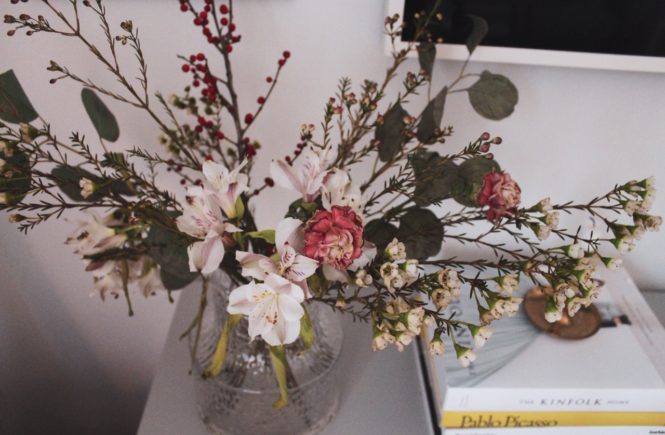At the end of 2019, I decided that 2020 would be a year of no shopping for me. Little did I know that it would be the weirdest year in our lifetime, challenging in so many ways forcing us to change the ways we live and prioritise differently. But I had decided to commit to a no-shopping year, and didn’t want to abandon it even though circumstances changed. So I stuck with it, and with us having entered 2021, I thought I’d share some of my reflections and learnings.
Why did I do it?
Over the last few years, I have changed the way I consume and have become increasingly more conscious of what I buy, what it’s made of and who made it. But the biggest shift has probably been around the notion of whether I need to buy something at all. Why am I buying it? Do I really need it? It is something I will treasure over time? Could I do without it?
I’ve also been exploring the act of consuming and what it does to us, and I wrote this piece questioning happiness linked with consumption.
A shift towards conscious consumption that questions the very act of purchasing something has been an interesting one and I wanted to explore this further. Trying out a year of no shopping seemed like a good test. To see what the challenges would be, what the benefits could be and what it would do to me.
Guidance or rules?
I didn’t set any specific rules but the whole idea was to try to avoid shopping anything, especially not for myself, unless I ran out of a beauty product for example. Some people make a list saying they can’t buy clothes or accessories, and others have a stricter no-shopping policy that covers all kinds of shopping. I opted for something in the middle but with a clear aim of exploring whether I could avoid all shopping.
If you’re considering doing something similar, I would recommend thinking about why you’re doing it and then set your guide or rules depending on this reason. Are you trying to save money? Then maybe try to avoid all shopping, apart from the absolutely necessary. Is your wardrobe too full and you feel overwhelmed by all the fashion you’re buying? Then maybe focus on setting rules for the amounts of clothes, shoes and bags you can buy.
My motivation came from wanting to explore what it would do to me to not shop so I set my aims based on that.
How did I do?
I started this year travelling in South America and bought a few books to read and I also visited a slow fashion boutique in Paraguay’s capital Asunción that I had read about and bought a top and a tote bag. I really wanted to support the girls running the shop and felt I could start the challenge once I got home…
Fairly early on in the year I realised my sports bra wasn’t doing what it should (after 10 years or so), and I had to buy a new one to be able to do my ballet classes without pain. It felt like a legitimate purchase.
And once the pandemic was our new reality and we had self-isolated in the countryside; I bought a jigsaw puzzle to have something to do.
In the autumn, I did a course (more on that in a different post) and even though I borrowed most of the books from the library, there were some books on the reading list I had to buy to get hold of them in time for the lectures. I also visited Gothenburg for work and wanted to visit a store doing clothes rentals, but because of the pandemic they had to close down and whilst I was in town, they hosted a sale selling off all their stock. I wanted to support them and bought two blouses, one of which I was able to wear at the (digital) conference where I was speaking.
And that’s pretty much it. We bought a few things for the flat over the year, but in terms of things for myself, that was it.
I didn’t manage to not buy anything at all, all year, but to only buy a handful of things over 12 months is definitely a result I’m happy with.
And how was it?
To do a no-shopping year during a pandemic had its challenges as well as advantages. When we haven’t got much to bring us joy, buying ourselves nice things to cheer us up is fairly common. But I had to just stop myself from thinking that buying stuff would cheer me up during such weird and challenging times.
The pandemic has been particularly hard for small businesses and the urge to wanting to support them has been particularly hard to deal with to be honest. And if anything, it has definitely showed me what kind of businesses I want to continue supporting once we’re out of the pandemic.
Being recommended to stay at home and avoid shops and crowded places has of course helped enormously when trying to avoid finding myself in situations where I might get tempted to buy stuff. Not going to shops is most definitely an easy way to not shop! But it has also made it clear how much stuff we buy just because we get inspired once we’re in the shop. If you spend a year barely being in any stores, you won’t find yourself impulse buying shoes / clothes / towels just because they looked good when you walked past them on a shelf in a nice boutique. And you realise you don’t actually need anything because your home is already full of stuff to use and wear.
What have I learnt?
Not shopping for a year was to some extent easier than I thought it would be. I’m privileged enough to already have a lot of things so I don’t need to shop. I also haven’t missed going around in shops feeling pressured to buy stuff just because it’s pretty / useful / on sale. What I have missed though is second hand shops and flea markets, which also says something about my shopping needs. I’m not necessarily interested in buying stuff on the high street, but instead I’m interested in finding rare objects, finds and old things that inspire me.
Going forward, this is definitely what I will continue focusing on. And as I mentioned earlier, the pandemic has made it even clearer that we need to be supporting the businesses we want to survive and thrive. Spending money on companies not doing much good for the world isn’t very satisfying, but every dollar we can give to the companies doing better is a much better investment. I’m aiming to continue being very selective with what I do buy and try to support conscious businesses as much as possible. To contribute to shifting the world’s capital towards better business.
During the year of no shopping, I’ve been working on a wish list on my phone. If I think of something I need or see something I really like then I put it on the list and let it stay there. Obviously this year, because I haven’t been buying anything, it’s stayed on the list for a long time, but what I’ve realised is also that quite a lot of those things get taken off the list after a while. When I realise I actually don’t need it, or even want it anymore.
An aim going forward will therefore be to continue the list, add things I’m interested in but then leave them on there for a while to see whether I still want it. That way, I’ll be able to avoid impulse shopping and it’ll also help me to make more conscious choices. I won’t do another no-shopping year this year, but I’ll try sticking to the list, I’ll definitely limit my purchases, and I’ll focus on second hand and conscious, small businesses.
Not shopping for a year has made me much more aware of what I do have already. It’s made me realise I don’t need a lot of new things, it’s made me appreciate what I have, and it’s helped me clarify what I do want and need going forward.
Anything else?
Whatever reason you may have for doing a no-shopping year, taking control over your spending is most definitely a useful lesson. I’ve never had much money to spare at the end of the month but with no shopping I’ve found myself in a different situation.
I’ve never been a big spender but have obviously spent the money I’ve had. Until this year. I’ve been lucky enough to keep my job this extremely difficult year and this has given me the very fortunate opportunity to properly start a savings account, to create a cash buffer, and even (on a very small scale!) enter the stock market. I’ve started taking control over my finances in a way that I haven’t before, and I’m certainly going to keep this up. I’ve set up a budget, monthly savings and a budget for charitable giving each month, and I’m hoping this will also help me be a more conscious consumer. With better control over my money and what I spend it on.

